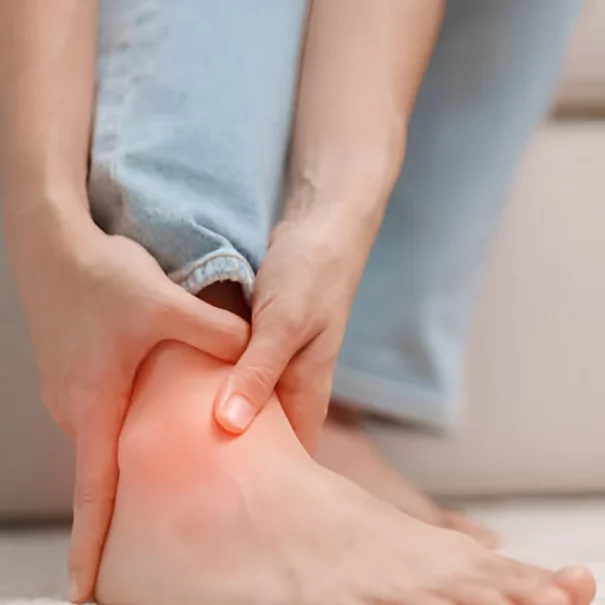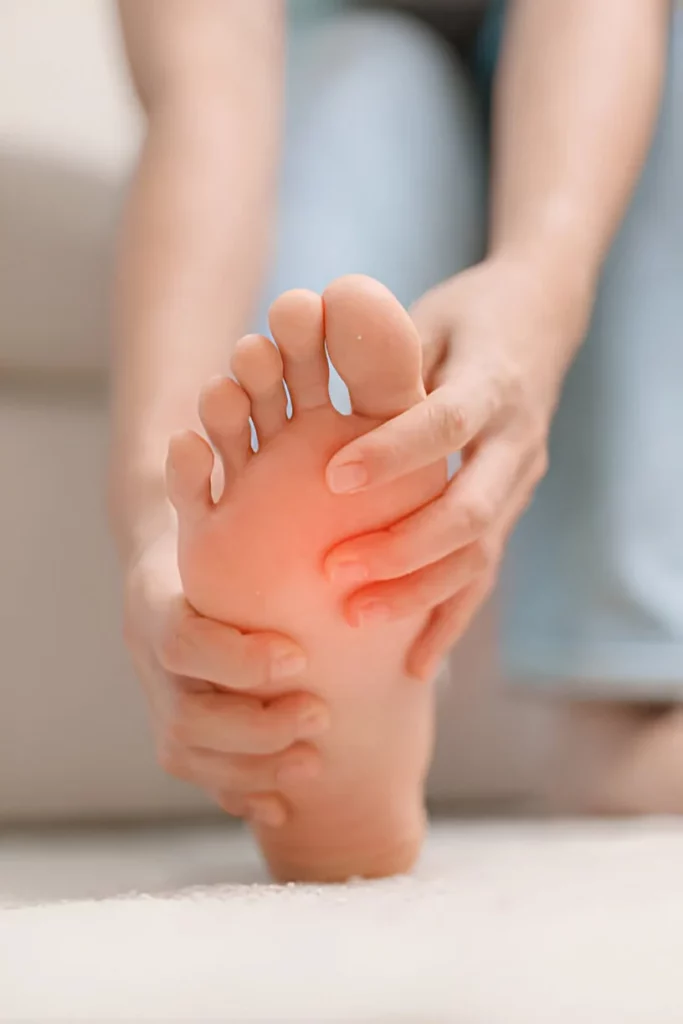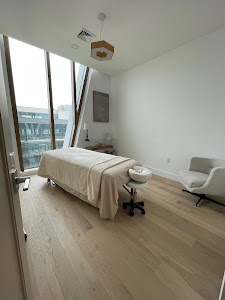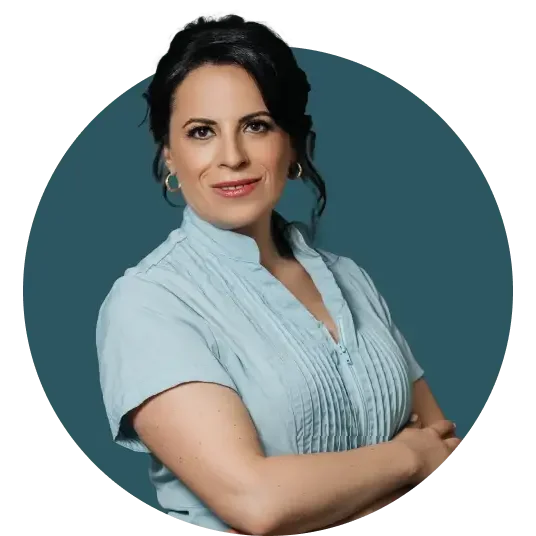Acupuncture for Tendonitis
Acupuncture for Tendonitis
What is Tendonitis?

Tendonitis is a medical condition characterized by the inflammation or irritation of a tendon, which is the thick, fibrous cord that attaches muscle to bone. This inflammation can cause pain and tenderness just outside a joint. Tendonitis commonly occurs in areas such as the shoulders, elbows, wrists, knees, and heels. When tendons are overworked, they can become inflamed. It is a common condition among athletes, workers who perform repetitive tasks, and older adults. Treatment usually involves rest, physical therapy, and in some cases, medication to reduce inflammation and relieve pain, as well as acupuncture for tendonitis.
Different Types of Tendonitis
Tendonitis can occur in various parts of the body, each type named for the affected tendon. Here are some common types:
- Achilles Tendonitis. Involves the Achilles tendon, which connects the calf muscles to the heel bone. It often affects runners and people who play sports like basketball and tennis.
- Patellar Tendonitis. Also known as jumper’s knee, it influences the tendon connecting the kneecap to the shinbone. It’s common in athletes who do a lot of jumping.
- Tennis Elbow. Affects the tendons on the outer side of the elbow. It’s associated with activities that involve repetitive wrist and arm motions.
- Golfer’s Elbow. Similar to tennis elbow, but it impacts the tendons on the inner side of the elbow.
- Rotator Cuff Tendonitis. Involves the tendons in the shoulder, typically affecting people who perform repetitive overhead motions.
Each type of tendonitis requires specific treatment to manage pain and inflammation effectively.
What Are the Symptoms of Tendonitis?
The symptoms of tendonitis typically include pain and tenderness around the affected tendon, which often worsens with movement. You may also experience swelling and mild redness in the area. The pain is usually sharp when you use the tendon and might become a dull ache during rest.
Stiffness is another common symptom, especially in the morning or after periods of inactivity. You might notice a grating or crackling sensation when you move the affected joint. In more severe cases, the area might feel weak, making it difficult to perform everyday activities.
If you suspect tendonitis, it’s important to rest the affected area and seek medical advice. Early treatment can help prevent further damage and promote faster recovery.
What Causes Tendonitis?
Tendinitis is primarily caused by repetitive motion or overuse of a tendon, leading to irritation and inflammation. This is common in activities that involve repetitive actions, such as sports, gardening, or manual labor. For example, athletes who frequently run, jump, or swing a racket are prone to tendonitis in the Achilles tendon, knees, or elbows.
In addition to overuse, sudden injuries or impacts can also cause tendinitis. Age is another factor, as tendons become less flexible and more prone to injury with time. Poor posture or improper technique during physical activities can strain tendons, leading to inflammation.
Certain medical conditions, such as rheumatoid arthritis or diabetes, can also increase the risk of developing tendinitis. Overall, tendinitis results from a combination of factors that stress and irritate the tendons.
Can Acupuncture Help With Tendonitis?
Acupuncture can be an effective treatment for tendonitis by helping to reduce pain and inflammation. The relationship between acupuncture and tendonitis involves using specific tendonitis acupuncture points to stimulate the body’s natural healing processes. These points are selected to improve blood flow, reduce muscle tension, and promote the release of endorphins, which are the body’s natural pain relievers.
During an acupuncture in Brooklyn, NY session, an acupuncturist will insert thin needles into these specific points on the body, which may be located near the affected tendon or along related energy pathways. This can help ease the symptoms of tendonitis, such as pain, stiffness, and swelling. Many people find that regular acupuncture sessions provide relief and help their overall recovery. Acupuncture offers a natural, drug-free approach to managing tendonitis.
What Types of Tendonitis Can Acupuncture Treat?
Acupuncture in Clifton, NJ can be used to treat various types of tendonitis, such as:
- Acupuncture for Shoulder Tendonitis. This treatment focuses on easing pain and inflammation in the shoulder tendons, improving mobility and reducing discomfort.
- Acupuncture for Peroneal Tendonitis. Acupuncture can help reduce inflammation and pain in the peroneal tendons, which are located on the outer part of the ankle, aiding in faster recovery.
- Acupuncture for Wrist Tendonitis. This approach targets the wrist area to ease pain and improve function, particularly beneficial for those who perform repetitive wrist movements.
- Acupuncture for Patellar Tendonitis. By targeting the knee area, acupuncture helps reduce pain and swelling in the patellar tendon, commonly known as jumper’s knee.
- Acupuncture for Tendonitis in Elbow. Often referred to as tennis or golfer’s elbow, acupuncture can effectively reduce pain and inflammation in the elbow tendons.
- Acupuncture for Ankle Tendonitis. This treatment focuses on easing pain and improving mobility in the ankle, helping to speed up the healing process.
Acupuncture offers a natural and holistic approach to managing various types of tendonitis.
When Should You Get Acupuncture for Tendonitis?
You should consider getting acupuncture for tendonitis when you experience persistent pain, swelling, or stiffness in the affected area that does not improve with rest or other treatments. If your symptoms interfere with daily activities or physical performance, acupuncture can be a good option.
Acupuncture is particularly helpful when traditional treatments, such as ice, rest, or anti-inflammatory medications, provide limited relief. For specific conditions like acupuncture for knee pain, which is often related to patellar tendonitis, acupuncture can help reduce inflammation and help with healing. Early intervention with acupuncture can prevent tendonitis from becoming chronic. It is also useful for those looking to avoid medication side effects or seeking a more holistic approach.
How Many Acupuncture Treatments Will You Need for Tendonitis?
The number of acupuncture treatments needed for tendonitis varies depending on the severity and duration of the condition. Generally, patients can expect to see improvement after a series of treatments. For acute tendonitis, about 6 to 8 sessions, typically once or twice a week, might be sufficient to reduce pain and inflammation. For more chronic or severe cases, a longer course of treatment may be necessary, extending to 10 to 12 sessions over several weeks.
Each session aims to stimulate the body’s healing processes and improve circulation to the affected tendon, helping to ease symptoms more effectively over time. It’s important to work closely with a licensed acupuncturist to get the treatment plan to your specific needs and monitor progress regularly.
Embrace the Healing Power of Acupuncture for Tendonitis at Pulse Acupuncture
Choosing Pulse Acupuncture for treating tendonitis is a wise choice. Our center, located in Clifton, NJ, and Williamsburg, Brooklyn, is known for its effective and safe acupuncture services. Our experienced practitioner, Marina Doktorman, L.Ac., ensures that each treatment fits the specific needs of the patient, focusing on easing pain and helping with healing.
With an approach that includes various acupuncture techniques, such as acupuncture for Achilles tendonitis and other specific treatments, Marina provides targeted treatments for different types of tendonitis. Her expertise in identifying the best tendonitis acupuncture points ensures effective relief from symptoms.
Patients can also expect a calm and professional environment. By choosing Pulse Acupuncture, you are choosing a high-quality care that combines traditional techniques with personalized treatment plans to achieve the best possible outcomes for tendonitis recovery.
Each session aims to stimulate the body’s healing processes and improve circulation to the affected tendon, helping to ease symptoms more effectively over time. It’s important to work closely with a licensed acupuncturist to get the treatment plan to your specific needs and monitor progress regularly.

-
Marina Doktorman, M.S., L.Ac., is an experienced acupuncturist who obtained her Masters of Acupuncture from the Tri-State College of Acupuncture in New York City in 2001. During her studies, she focused on Chinese Herbology, a branch of Traditional Chinese Medicine (TCM) that utilizes herbs to complement acupuncture treatments. Marina is licensed in both New York (NY) and New Jersey (NJ) and holds a Diplomate of Acupuncture from the National Certification Commission for Acupuncture and Oriental Medicine (NCCAOM), indicating her expertise in the field.
Why Pulse Acupuncture?

Experience
Marina Doktorman, L.Ac. has over 20 years of clinical experience.

RELAXATION
At Pulse Acupuncture, we aim to cultivate a spa-like environment.

Comfort
All of our needles are of the highest quality for painless insertion.
Patient Reviews in Brooklyn


I had the pleasure of working with Marina, Laryssa, and Jaesung, and they have all been absolutely amazing. Thanks to this incredible team, I can now sit, drive, walk, sleep comfortably, and function normally again. I truly don’t think I’d be where I am today without their care and expertise.
Pulse Acupuncture has become my go-to place for anything pain-related. The entire team is warm, compassionate, and professional, with outstanding bedside manners.
I highly recommend Pulse Acupuncture to anyone experiencing pain and looking for effective, non-invasive treatment. Truly life-changing! 😊











Marina is very accommodating, kind, and attentive, and her staff is a pleasure to deal with. I highly recommend Pulse.














Acupuncture has truly changed my life and has helped me in ways I didn’t even know were possible.
I started doing acupuncture to balance my hormones after 2 years of unsuccessful fertility treatments. When I started seeing Marina, my periods were starting to be regular and I was dealing with a few different symptoms which we started treating right away (constipation, random headaches, body aches)… in the last 3 years I have not been sick (no flu, have never tested positive for COVID) - Marina even treated me for allergies more than a year ago during an allergy episode in changing seasons.
Also want to mention Larissa as I started seeing her in Marina’s beautiful office and she’s also contributed to my wellness journey. Acupuncture is my favorite wellness practice, I see them regularly and have never felt better. I sometimes just tell them whatever I’m thinking/feeling knowing they will stick some needles in different places of my body and I come out floating and feeling so relaxed.




Excellent service- great results- highly recommended ~!





Marina is not only incredibly knowledgeable, but also very calming and has great bedside manners. If you're looking for a fantastic acupuncturist I can't recommend her enough!!













After 10 minutes of the procedure, you get into a different reality. Marina is knowledgeable, answers all the questions. After the procedure, the skin of the face glows, the body becomes lighter by a couple of pounds. I've been looking for such a procedure and state of mind for a long time.


I am beyond grateful to Marina, because after trying so many things, I almost lost hope. highly recommend Pulse Acupuncture and Marina for anyone seeking relief from pain or other health concerns.
The acupuncture sessions themselves are incredibly relaxing and therapeutic. Marina's gentle touch and precise needle placement always leave me feeling calm and rejuvenated. She also incorporates other techniques, such as cupping, which have been very beneficial for my overall health and wellbeing.
In addition to her skill as an acupuncturist, Marina is also a wonderful person to work with. She is warm, friendly, and genuinely cares about her clients' wellbeing. I always leave our sessions feeling refreshed and uplifted, both physically and mentally.
Overall, I highly recommend Pulse Acupuncture and Marina for anyone looking for high-quality acupuncture and personalized care. Thank you, Marina, for your exceptional service and dedication to helping others achieve optimal health!
Acupuncture for Tendonitis - FAQ
Can acupuncture help with tendonitis?
Yes, acupuncture can help with tendonitis by reducing inflammation, alleviating pain, and enhancing blood circulation to the affected area.
What can I expect during an acupuncture session for tendonitis?
During an acupuncture session, very thin needles are inserted into specific points on the body. The insertion is generally painless. You might feel a mild sensation when the needles reach the acupuncture points. Sessions usually last between 30 to 60 minutes.
Are there any side effects of using acupuncture for tendonitis?
Side effects are rare but can include soreness, minor bleeding or bruising at the needle sites. These symptoms typically resolve quickly.
How quickly can I see results from acupuncture for tendonitis?
Some individuals experience relief immediately after treatment, while others may notice improvement after a few sessions. The response to acupuncture can be individual and depends on various factors, including the nature and severity of the condition.
Contact us
Acupuncture therapy at Pulse Acupuncture Practice, at Clifton, NJ and Williamsburg, Brooklyn, NYC offers unique combination of various cupuncture types for healing on all levels: emotional, spiritual and physical by integrating ancient wisdom of energy healing with modern acupuncture techniques.


